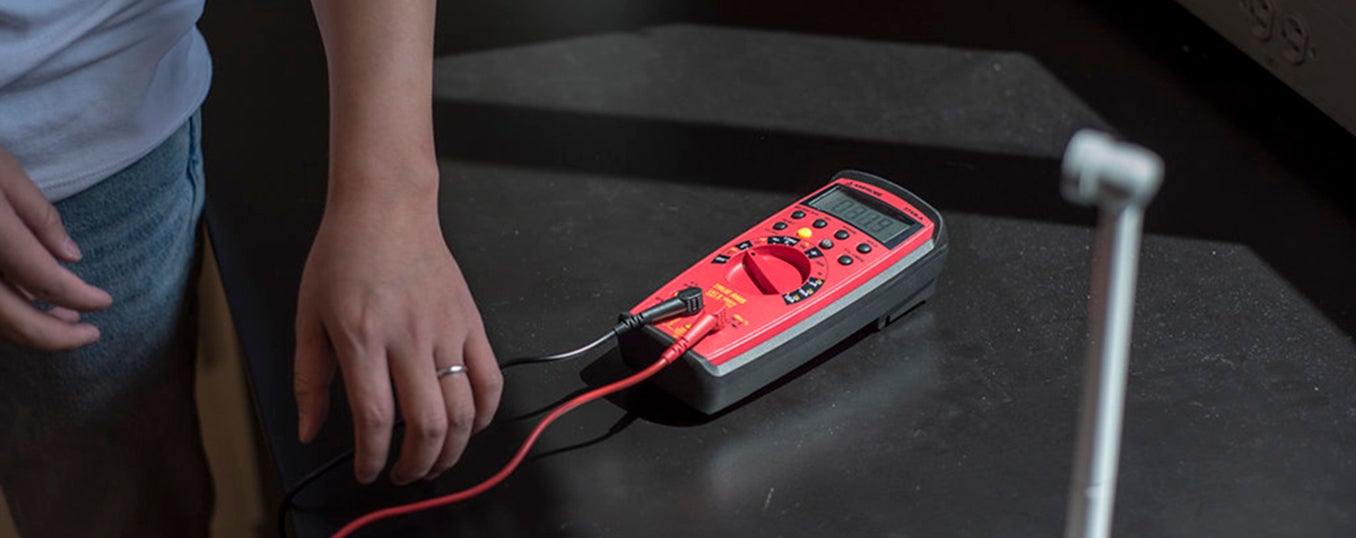Electrical Engineering
In our everyday lives, we're constantly surrounded by the products of innovative electrical engineering. From cell phones and communication networks that keep us connected to all manner of life-saving medical technology, electrical engineers are responsible for so many of the products and systems that define modern life. If you're interested in contributing to the formidable technological tradition of Tesla, Edison and Marconi, our Bachelor of Science in electrical engineering will allow you to develop the skills necessary to be part of this vital field. Collaborate with peers and faculty on original research, pursue experience-building internships and advance technology for all.
Participants in the BS in electrical engineering program choose a specialization such as communication systems and digital signal processing, robotics, electronics, photonics and microsystems, or power and energy. Electrical engineers can be found in almost every area of the workforce, from research and development to consulting to education, and the electrical engineering program prepares you to either enter the workforce immediately or pursue more advanced engineering degrees.
The bachelor of science degree in electrical engineering is a four-year integrated engineering sequence, stressing engineering design and project work, much of which is interdisciplinary and involves constructive teamwork. All electrical engineering students are required to choose an area of specialization, giving the discipline more depth, or complementing it, according to the student’s individual interests. The area of specialization can be fulfilled through the student’s choice of technical electives.
- Communications Systems and Digital Signal Processing
- Robotics
- Electronics, Photonics, and Microsystems
- Power and Energy
- Individualized Option
Graduates with a BS in electrical engineering will be able to design, develop, test and supervise the manufacturing of electrical equipment, including electric motors, radar and navigation systems, communications systems and power generation equipment. The BS in electrical engineering requires a minimum of 202 credits, comprised of DU common curriculum, required degree courses and technical electives.
Featured Courses
ENGR 2610
Integration
About this Course
Interdisciplinary course combining topics from computer, electrical and mechanical engineering including engineering ethics, with emphasis on laboratory experience and the design, analysis and testing of interdisciplinary systems. Manufacture of mechanical systems and/or circuit boards. Team project work on interdisciplinary "design-and-build" projects. Prerequisites: ENGR 2035 and junior standing in the appropriate engineering discipline.
ENGR 3313
Senior Design
About this Course
Planning, development and execution of an engineering design project. The project may be interdisciplinary, involving aspects of computer, electrical and mechanical engineering. Projects have economic, ethical, social and other constraints, as appropriate. Design activities include 1) preparation and presentation of proposals in response to requests-for-proposals from "customers," including problem description, quantitative and qualitative criteria for success, alternate designs and project plans; 2) generation and analysis of alternate designs, and choice of best design; 3) formulation of test procedures to demonstrate that the design chosen meets the criteria for success, and testing of the completed project where feasible; 4) reporting on the design and testing. Prerequisite: ENGR 2620 and ((ENME 3511 and ENME 2671) or (ENCE 3231)) and senior standing in engineering.
ENEE 3141
Digital Communications
About this Course
Introductory course on modern digital communication systems. The basic communication system theory, probability and random processes, baseband digital data transmission, coherent and non-coherent digital modulation techniques and analysis of bit error probability. Bandwidth efficiency and transmission of digital data through band-limited channels. Prerequisites: ENEE 3111, ENGR 3610 or permission of instructor.
Application Information
Take the first step toward your academic career at the Ritchie School.








